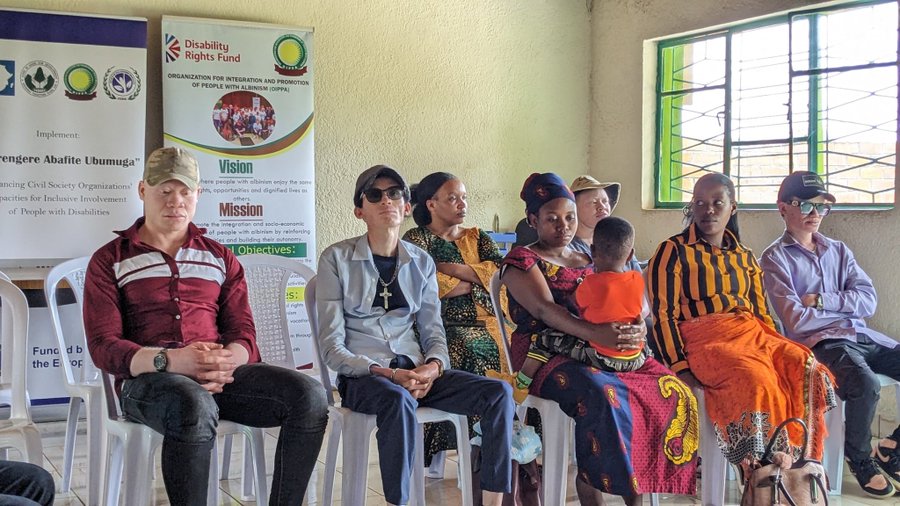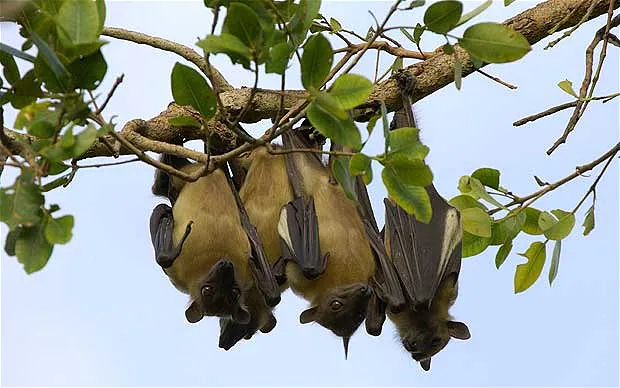As the climate continues to change, populations living with albinism in Rwanda disproportionately feel its effects. Albinism is a genetic condition that results in the absence of melanin in the skin, hair, and eyes, making individuals with albinism extremely sensitive to the harmful effects of the sun.
As a result, they face an increased risk of skin cancer, which has become one of the most serious health concerns for them.
In Rwanda, the negative effects of climate change, with rising temperatures and intense sun exposure making their lives even harder, worsen the situation for people with albinism.
The Organization for the Integration and Promotion of People with Albinism (OIPA) stated that every year, at least one member dies due to skin cancer.
Charles Komezusenge’s Testimony: The Harsh Reality of Sun Exposure
Charles Komezusenge, Vice President of the Organization for the Integration and Promotion of People with Albinism (OIPA), is all too familiar with the devastating effects of prolonged sun exposure.
Having battled skin cancer himself due to excessive sun exposure from work that kept him in the sun for extended periods, he is a living testimony to the health dangers faced by people with albinism.
“I am a living witness to the health dangers that people with albinism face,” he says.
He emphasizes the need for proper protection, including regular health checks, sunscreen, sunglasses, and sun-protective clothing to prevent the onset of skin cancer.
However, as Mr. Komezusenge points out, these preventive measures are not always feasible, especially in low-income regions like Rwanda, where many people with albinism live in extreme poverty.
“The essential protection methods for our well-being are out of reach for many of us,” he says, highlighting the deep challenges caused by both the climate and the lack of resources.
Dr. Nicodeme Hakizimana’s Call for Collective Responsibility
Dr. Nicodeme Hakizimana, Executive Director of the Organization for the Integration and Promotion of Persons with Albinism (OIPPA), also emphasizes the importance of regular health checks and access to sun protection for people with albinism.
“Sunscreen, sunglasses, and clothing that block the sun are key to protecting people with albinism from skin cancer,” he explains. Unfortunately, in Rwanda, these products are often unaffordable, and many people are unaware of the dangers associated with sun exposure.
Dr. Hakizimana also highlights an important point: albinism is not confined to a specific group. “Whether you are albino or not, you can have an albino baby,” he states. This means that everyone, regardless of whether they have albinism, has a role to play in supporting people with the condition and addressing the challenges they face.
He calls for collective responsibility to create an inclusive society, where people with albinism are not marginalized or discriminated against. This will require a concerted effort from all members of society to combat the misconceptions and stigmas that perpetuate the exclusion of people with albinism.
Barriers to Accessing Healthcare and Protection
In addition to environmental and economic challenges, people with albinism in Rwanda also face barriers to accessing the essential services they need for protection. Although there have been efforts to provide sunscreen in health centers, particularly for individuals with albinism, many are turned away due to a lack of supplies.
Some health center administrators even impose restrictions, claiming that sunscreen is too expensive. The refusal of vital products like sunscreen not only endangers their health but also reflects a lack of value placed on their lives.
The Importance of Education and Awareness
It is clear that education and awareness are crucial in addressing the challenges faced by people with albinism. Misconceptions and stigma often arise from a lack of understanding about albinism.
Dr. Hakizimana stresses the importance of public awareness campaigns to help dispel these myths and encourage a more inclusive society.
“We must come together to ensure that people with albinism are treated with dignity and respect, and that they have access to the resources they need to stay healthy and safe,” he says.
As climate change continues to worsen the already difficult conditions faced by people with albinism in Sub-Saharan Africa, including Rwanda, it is imperative that governments, organizations, and society as a whole work together to create a more supportive and inclusive environment.
Providing access to sunscreen, regular health checks, and protection from the sun is not just a matter of health; it is a matter of human rights and dignity.
The fifth Population and Housing Census of 2022 indicates that there are 1,860 individuals with albinism in Rwanda.
BY NIKUZE NKUSI Diane





